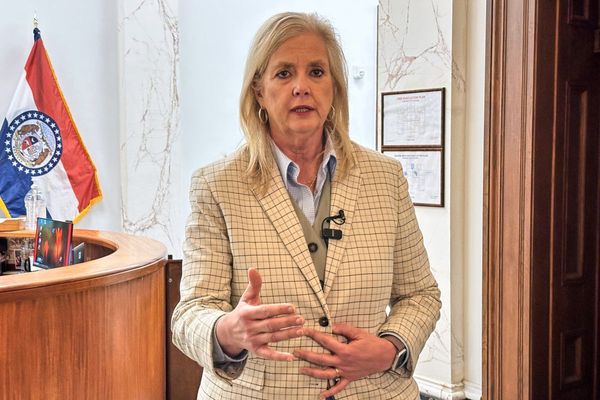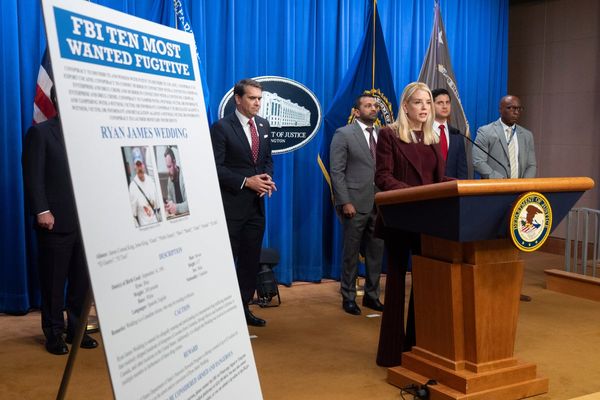
The Great Queue, the extraordinary slow-shuffling prelude to the Queen’s funeral, has been revealing of several things about this charged moment in our nation’s history.
The first is clearly the strength and depth of admiration for the symbol and person of the late monarch herself, a respect that has been measured by hundreds of thousands of cheerfully footsore mourners in long miles over recent days and nights. Walking the length of the queue from Parliament Square towards the East End or watching the never-ending crowd file past the coffin in Westminster Hall on TV is to be struck by the universal pull of that emotion. The queue has been made of people of all ages and cultures and communities and social backgrounds, people from all parts of this country and from all corners of the world.
That spectacle is the walking proof of what people mean when they have talked this week of the Queen as a fixed point of grace and civility in the consciousness of nation and Commonwealth. Even those political traditions, like those of this newspaper, which profoundly doubt the place of any hereditary principle in a democracy, and the inequalities of wealth and land and opportunity it embodies and entrenches, recognise that the mourning is marked by a sense of anxiety for the perceived passing of that fixedness, the threats to those values.
The past 10 days have also been an overwhelming demonstration of the institution’s other primary effect: its seductive ability to remove a large mass of people from their everyday cares to unite them in an idea or at least a mood that is bigger than themselves. There are other events and forces that can do that – religions, political causes, the progress of the national football team. The monarchy, though the most anachronistic, the most dependent on magical thinking, is also to many the most tried and trusted. We all understand the happiness and the sadness of families.
Tomorrow, a significant part of the world will be transfixed momentarily by the poignant climax of that historic spectacle. Tuesday morning will see that attention finally dissolve and this nation changed – and not changed. The issues that were so urgent in the ancient history of a week last Wednesday will still all be there, no doubt in sharper relief. The current hiatus of performative unity has temporarily masked the political and economic and environmental crises that will return to the front pages with full force.
In that new post-Elizabethan world, the primary challenge for King Charles III, one he has so long prepared for, is to live up to the example of his mother. He is making all the right noises about being politically uninvolved. He may, like her, find a symbolic role to play as a silent reminder of decency and common sense. There have not been many times in this nation’s long history when it could have been claimed that the monarch holds more progressive values and ideas about the environment and opportunities for the nation’s young people than his or her elected government, but this promises to be one of them.
This week, the new prime minister and her narrow band of political allies will embark on their reckless programme of tax cuts and eye-watering indebtedness. They will no doubt wrap themselves in the nation’s flag while continuing the work of the last administration in undermining, one by one, the independence and health of its most treasured institutions. They will attempt to ignore the demands for an independent Scotland and the self-inflicted threats to Northern Ireland’s political settlement, while desperately searching for any upsides in the economic wreckage and insularity of Brexit. And they will, it appears, address the cost of living emergency with ideology about deregulated markets that in practice involves inflated City bonuses and the false promises of fracking. The new King’s commitment – in his thinking, if not his lifestyle – to a more unified and sustainable world may come to be seen as a small counterweight to that failed philosophy.
If these past days have highlighted anything, it is perhaps the fact that while the current government relies for its support on a culture of division and scapegoating, there is, even in tradition-loving quarters, a latent desire for a more inclusive shared purpose. If one remark has dominated the comments of those interviewed in the Great Queue, it is how they have loved connecting with others queueing alongside them. For some, fed a daily diet of fear and loathing in populist and social media, that connection appears to have come as a welcome surprise, a reminder of that most threatened and precious of beliefs: that we yet have more in common than that which divides us.
That commonality has never been the gift of kings and queens. It has, we should never forget, been enabled by the traditions of dissent and debate and freedoms of thought and speech of ordinary people, which existed at first in spite of monarchy and then, not always comfortably, alongside it. It should go without saying that no caste or nation has any special right to the qualities the Queen came to embody in so many eyes and that will be rightly celebrated in tomorrow’s final farewell: selflessness, kindness, loyalty, hope – and an eye for a party – are possible anywhere. If there is one lasting sentiment to take from her example, it is that those human ideals, not any pageantry or “patriotic” exceptionalism or misty-eyed nostalgia, should be her legacy. In a phrase that has done more than yeoman’s service in the past week: it’s what Her Majesty would have wanted.
Do you have an opinion on the issues raised in this article? If you would like to submit a letter of up to 250 words to be considered for publication, email it to us at observer.letters@observer.co.uk







